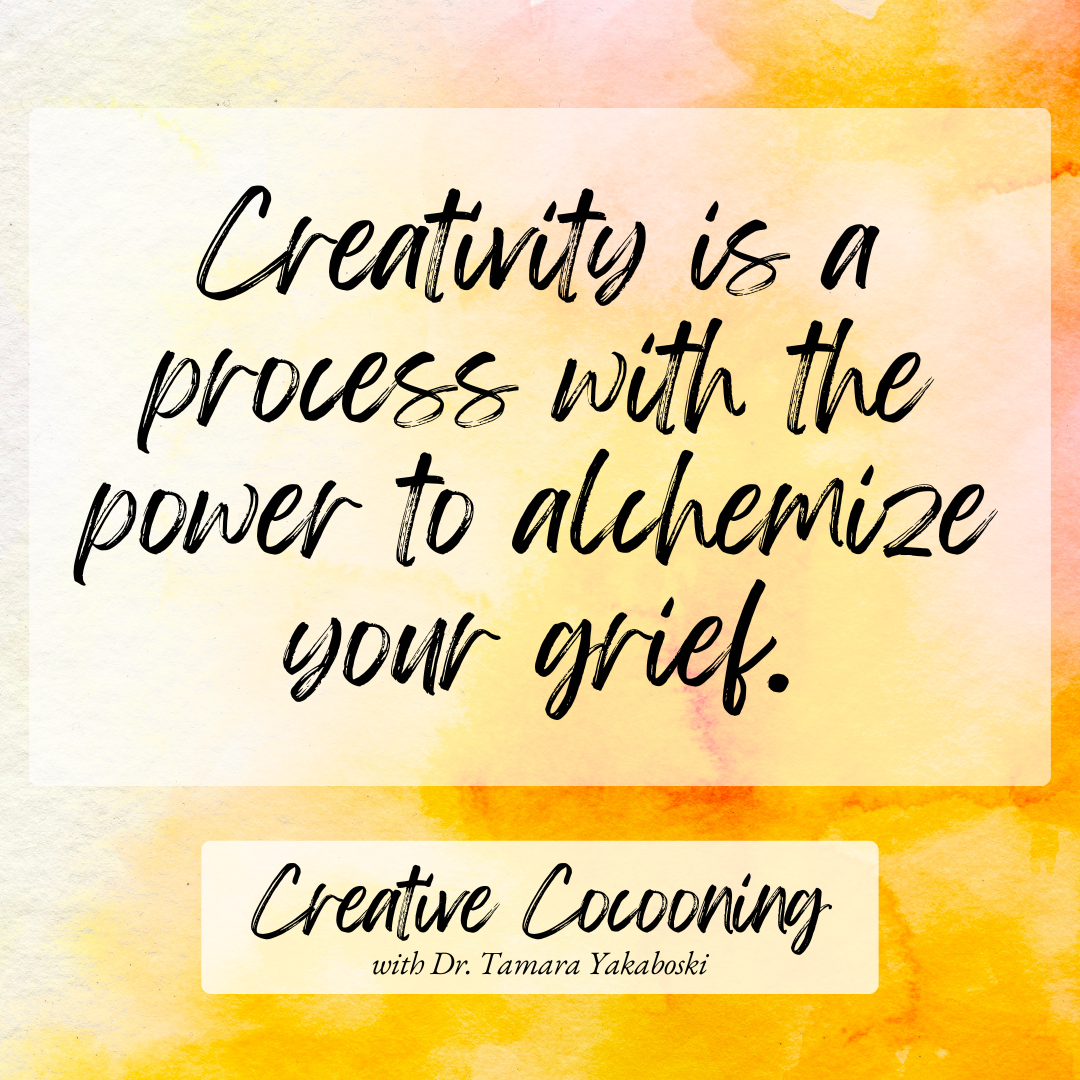
Prioritizing Creative Work
“I’m done overworking.”
“This feels wrong.”
“I’m tired of everyone else’s urgency. What about mine?”
Ooffff, feel that last line, my fellow Overers? Sacrificing your potential for the illusion of professionalism. It’s about prioritizing “creative work first, reactive work second,” says creative coach Mark McGuiness.
Can I get a hell yea! Say it louder for those in the back, will ya?!
Creativity is a process with the power to alchemize your grief
Creativity is a process with the power to alchemize your grief.
Yet in our scarcity-minded society we push both of these away - our innate creativity and our experiences of grief. It’s no wonder you have been left without practices and rituals to process that grief into your healing and next vision.
Career grief can feel isolating and guilt-producing, especially because career grief is unacknowledged grief that others may not support or validate, which is exactly what lands it in the category of disenfranchised grief. I see a parallel treatment of climate grief in my workshops on building climate resilience.
Creativity isn’t a luxury
You aren’t ever going to have time.
You have to make the time and be intentional. I know bandwidth is low. And I also know that creative rest paired with a supportive community will increase that bandwidth. That’s why I created Creative Cocooning. It will grow your window of tolerance if you let it.
Creativity isn’t a luxury or optional when you want to live a life of impact.
Creative Cocooning
As a leader you can’t afford to skip your creative process.
Creativity is one of the key practices to innovation and resilience.
Creativity requires a reconstruction and deconstruction of sorts, like the metamorphosis process.
Why care about creativity when you have so many pressing issues and too many demands on your time and attention?
Creativity is Resilience Work
You’ll hear me say this on repeat.
Resilience is a built competency with skills, content knowledge, behaviors, practices, and mindsets. It’s about your body’s felt sensations, nervous system and emotions, mindset, and the stories you tell yourself. It’s how all of those pieces either inform your behaviors in a reactive way or in an intentional, responsive, slowed down way.
Okay. That's my soapbox foundation.
Now add: Regular creativity work…
Embrace a cyclical nature of development
I work with leaders and change agents who are in their mid 30s-50s. I, too, fall in this range. The menopause transition will impact every single one of us either directly or with loved ones and colleagues. The symptoms emerge exactly during the time period when you are caregiving (children, loved ones, elders) and/or navigating the height of your career or a second and third career transition.
Given this, the menopause transition should be part of all leadership and professional development
Discover your authentic voice
It’s been five years since I nudged myself forward in ways that felt scary AF and super vulnerable. In retrospect, that was a small step but a critical one to learn how to show up in bigger, more authentic ways. I’m celebrating five years of a journey to push the edges of my discomfort that has grown my window of tolerance. I’m also cheering for the ripple effect that this inner work has had in supporting others as they develop their voice as well.
While it has only been about 125 posts since I first hit ‘publish’ on April 24, 2019, I can see how I charted a path to discover my authentic voice.
Power of language on your brain
Language is powerful. The words we use and assign meaning to help shape the stories our brain tells us. There’s that powerful moment when someone tells you or you read something that encapsulates an experience you’ve been grappling with. This often happens when I offer the label of “grief” to what they are feeling - be it career grief or climate grief or another kind of disenfranchised grief. I see then that AHHA moment of, “Yes, that’s it!”
Language can also shape how we come to think of ourselves and our life’s transitions.
What’s the story you’re living in?
The brain tells you stories all damn day long and then creates dreams to catalog those stories.
The human brain creates a version of reality for you based on a cumulation of past experiences, surroundings, selected memories, and stories we tell ourselves. The brain has evolved to keep us safe. As our brains got bigger and our muscles smaller (relative to the beginning of humanity and other animals), the brain needed to find ways for safety while also being able to digest information from our environment or surroundings and our body quickly.
Change is a given
Change is a given. Transformation is that change done in an empowering way. And that latter part is a choice. Your choice.
There are so many opportunities for transformation in our life journey. The world is begging and pleading for transformation all around us. This is why you find my weekly newsletters popping around topics of grief, career changes, leadership, menopause, climate, gardening, writing practices, creativity, around and around.
Stereotypes keep us disempowered
The journey through and with menopause is one LOUD invitation into your own empowering transformation. Menopause is about embodiment and reclaiming our own stories. It’s about how you (re)learn to connect to your body (and its inherent wisdom) when society, education, and work systems have all taught and trained us to be disconnected. One of the main ways that disconnection gets perpetuated…
Making sense of our grief
Touchpoints throughout every week, sometimes days, now contain regular conversations on grief. My own, friends, clients, and strangers in passing. There is so much to grieve. The world has become more painful and traumatic. Loss is more present than ever. And, also, the world has always been traumatic for some. Many of us just didn’t or couldn’t see it or it was easier to turn away.
Grief is something to turn towards, not away from. We show our humanity and the potential to do things differently in how we build a relationship with our grief.












